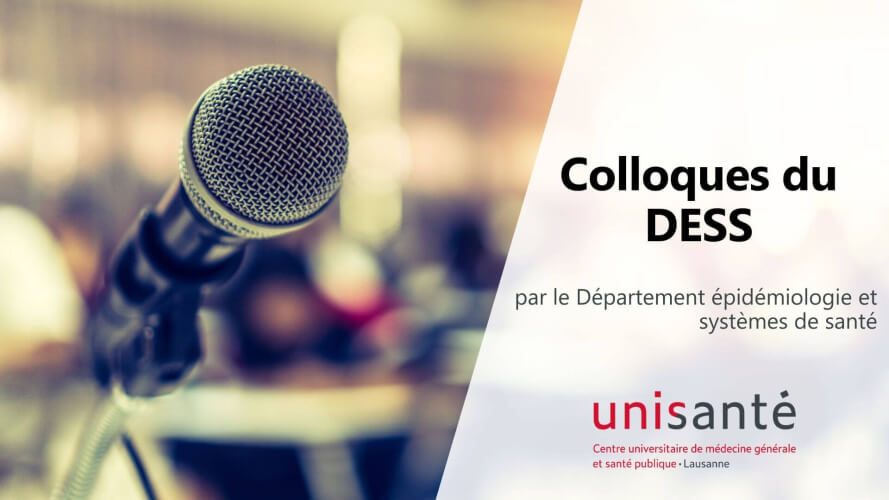Colloque DESS: AI-assisted modelling of heat-related mortality in Germany
Stimuler la réflexion, s’ouvrir à de nouvelles perspectives, suivre l’actualité des recherches, des pratiques et des initiatives en santé publique, débattre: autant de fonctions remplies par les colloques du Département épidémiologie et systèmes de santé (DESS). Chaque session, des spécialistes d’horizons divers viennent présenter l’état de leurs recherches, leurs expériences ou leurs projets.
Ces colloques, ouverts au public, s’adressent à un large public de professionnelles et professionnels de la santé. Ils sont recommandés par la Société suisse des spécialistes en prévention et santé publique (SPHD) pour la reconnaissance de la formation continue.
Titre:
« AI-assisted modelling of heat-related mortality in Germany »
Abstract:
Heat has become a leading cause of preventable deaths during summer. Understanding the link between high temperatures and excess mortality is crucial for designing effective prevention and adaptation plans. Yet, data analyses are challenging due to non-linear heat-mortality dynamics and oftentimes fragmented data archives over different agglomeration levels. We introduced a multi-scale machine learning model to estimate heat-related mortality with variable temporal and spatial resolution. This approach allows us to estimate heat-related mortality at different scales, such as regional heat risk during a specific heatwave, annual and nationwide heat risk, or future heat risk under climate change. Using Germany as a case study, we estimated heat-related mortality risks at district level and visualized local health risks during a selected heatwave.
Speaker:
Dr. Christopher Irrgang
Mathematician and Earth system researcher with a specialization in artificial intelligence. During the last years, he has continuously broadened his research areas, connecting climate, social, and life sciences through process- and data-driven approaches. Currently, he is responsible for an interdisciplinary research team of ten members at the graduate to postdoctoral level. Besides the scientific work, he is taking part in the structural and administrative build-up of the Centre for Artificial Intelligence in Public Health Research (ZKI-PH), which is the newest department of the Robert Koch Institute (RKI). Over the period of one year, they have recruited around 40 scientific members (PhD students, PostDocs, group leads) in four research units. They are focusing their work on current challenges in public health systems and future pandemic preparedness.
Programme complet
Visioconférence
Lorsqu'il sera l'heure, rejoignez votre réunion Webex ici.
Autres de moyens pour rejoindre les réunions :
Rejoindre la réunion à partir du lien de la réunion
https://chuv.webex.com/chuv/j.php?MTID=m9d731d684ec9865edbf499fec1a673e5
Rejoindre la réunion par le numéro de la réunion
Numéro de la réunion (code d’accès) : 2790 760 2537
Mot de passe de la réunion : 3RFxZ89x3iN
Vous avez besoin d’aide ? Allez à l’adresse https://help.webex.com
